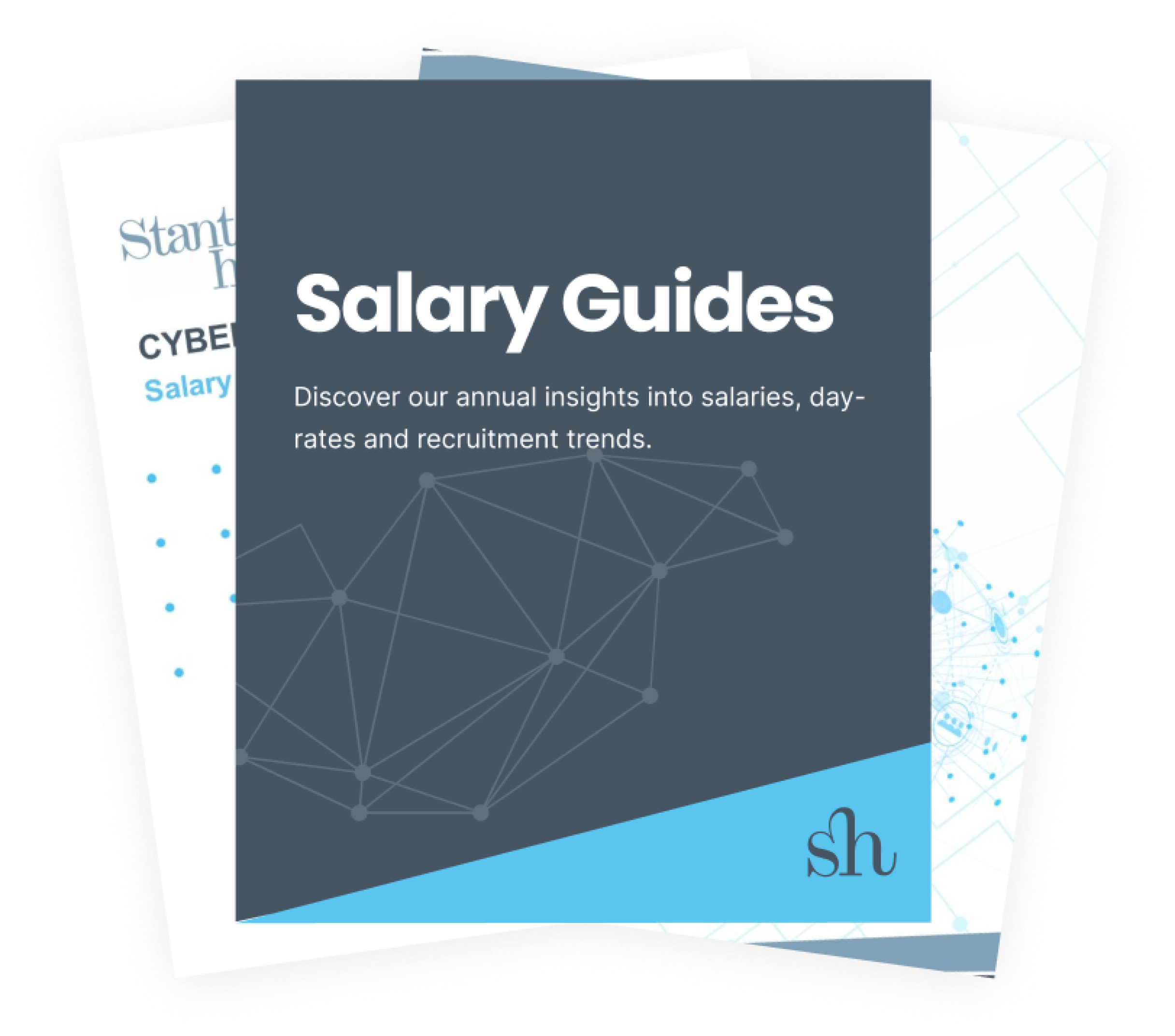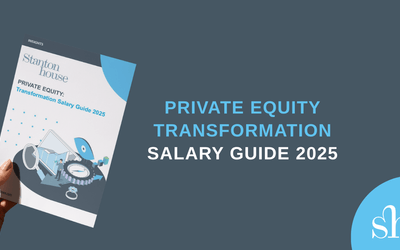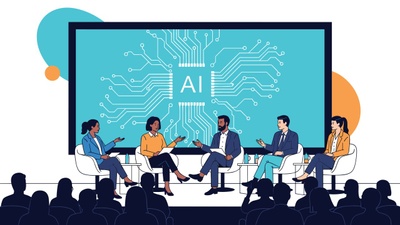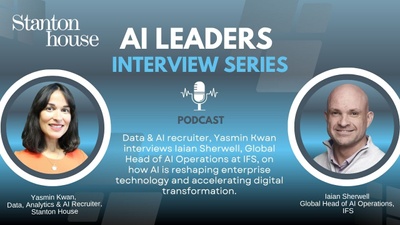
ERP Transformation: The Hardest Change Isn't the Tech - It's the Behaviour
A week ago, I shared a post on LinkedIn about the role of change management in ERP transformations. I talked about how the “people side of change” is often the biggest factor in whether an ERP programme succeeds or fails - and it clearly struck a chord.
Leaders across Finance, Change, and Technology responded with thoughtful, honest reflections - and in many cases, hard-earned lessons. Their insights only reinforced what I see every day as a recruitment specialist in Finance Transformation: technology doesn’t drive transformation - people do.
That original post has sparked this longer-form piece. Because while the system might be the enabler, behaviour change is the real transformation, and it’s time more businesses planned for that from the start.
ERP Success Still Isn’t the Norm
Let’s start with some context. Despite all the advancements in ERP platforms, most implementations still struggle to deliver the benefits promised at the outset.
Recent data suggests:
- 55% to 75% of ERP projects fail to meet their objectives, according to industry research from Gartner and others.
- Only 28% of ERP implementations finish on time and on budget, while the average budget overrun is a staggering 189%.
- And Deloitte has labelled change management the single biggest failure point in ERP projects, largely due to people-related challenges.
In other words, it’s not the tech that’s falling short. It’s the way we approach the transformation around it.
Pitfalls I See Too Often
As someone who partners with organisations across multiple sectors, I’ve worked with clients mid-programme, post-failure, and in early scoping stages. No matter the size of the business or platform, the same pitfalls appear again and again.
1. Bolting On Change Too Late
Change management is often introduced too far down the line—after the design phase or even into build. But by then, stakeholders are reacting to change, not shaping it. One Change Assurance Consultant put it perfectly:
“ERP rarely fails on tech; it fails on the story. If people don’t see themselves in the future you’re building, they won’t help build it.”
2. No Clear Ownership Within the Business
Programmes often rely on external consultants or the central project team to drive change—but without clear, empowered ownership inside the business, change doesn’t stick.
3. Training That’s Tick-Box, Not Transformational
I regularly hear feedback about training that’s too generic or crammed into go-live week. Real training should be role-specific, bite-sized, and confidence-building—more like product marketing than schoolwork.
4. Feedback That Goes Nowhere
Even when employees are encouraged to give feedback, they rarely see how it’s acted on. This erodes trust. One Transformation leader described it as:
“Close the loop visibly - from feedback to decision to action - so trust compounds.”
Behaviour Change: The Real ROI Driver
Too often, organisations confuse system adoption with true behavioural change. But being trained to use a new system isn’t the same as working in a new way.
Behaviour change requires:
- Clarity – What’s expected of me?
- Capability – Do I have the tools and support?
- Confidence – Am I empowered to act differently?
- Consistency – Are my leaders modelling the same behaviours?
As one Finance Transformation Specialist shared in response to my post:
“The technical migration is the easy part; it’s the people side that makes or breaks ERP adoption. We focused on aligning workflows and securing buy-in before touching the system. That made the transition smoother and the benefits more sustainable.”
They’re absolutely right. When behaviour shifts, that’s when transformation really takes hold. It’s also when you start to see the commercial benefits ERP was meant to unlock.
The Research Agrees
All of this is backed up by the data:
- Studies show that around 20% of ERP failures can be directly attributed to poor change management - whether that’s resistance, lack of buy-in, or insufficient comms.
- A separate report found that only 28% of ERP projects are delivered on time and within budget, with 52% going over budget by nearly double.
- In academic studies, researchers concluded that over half of ERP programmes fail to deliver the business benefits expected, mainly because the people and behavioural elements were underestimated.
So, when businesses underinvest in the “soft side” of change, the results are anything but soft. They're expensive, disruptive, and often reputationally damaging.
What Good Looks Like (from the Market and the Field)
From the leaders I’ve spoken with - and the programmes I’ve supported - here’s what strong, embedded change looks like:
✔ Start Early: Make change management a thread running through the whole programme, from scope and design to post go-live optimisation.
✔ Engage, Don’t Just Inform: Comms should spark conversation, not just deliver updates. Give employees the space to ask questions, share concerns, and contribute.
✔ Train Like a Marketer: Tailor training to roles and workflows. Make it engaging, actionable, and confidence-building. Help people succeed - not just survive.
✔ Give the Business Real Accountability: Nominate change champions within teams. Equip and empower them to embed change from within, not deliver it from above.
✔ Measure More Than Adoption: System usage is one metric. But also track engagement, sentiment, and real-world performance. This tells you whether behaviour has actually shifted.
Final Thoughts: ERP Transformation Is a Human Challenge
When it comes down to it, ERP isn’t just about new systems. It’s about new ways of working.
If you’re going to change how your organisation runs, manages data, reports, and collaborates, you need to change how people think, behave, and engage. That’s a behavioural challenge before it’s a technical one.
So, my challenge to any business planning a transformation is this:
Are you ready for the system to go live, or are your people ready to work differently?
If you can’t confidently say both, the risk isn’t just delay - it’s lost value.
Get in Touch
If you’re about to embark on an ERP transformation, or you’re mid-journey and need support, I’d love to help. Whether you're looking to:
- Build a transformation team with the right change leadership capability
- Explore hiring options for programme-critical roles
- Or you’re a Finance Transformation professional considering your next career step
Feel free to reach out and connect with me. Let’s discuss how I can support your hiring needs - or help you navigate your professional path in this space.



















